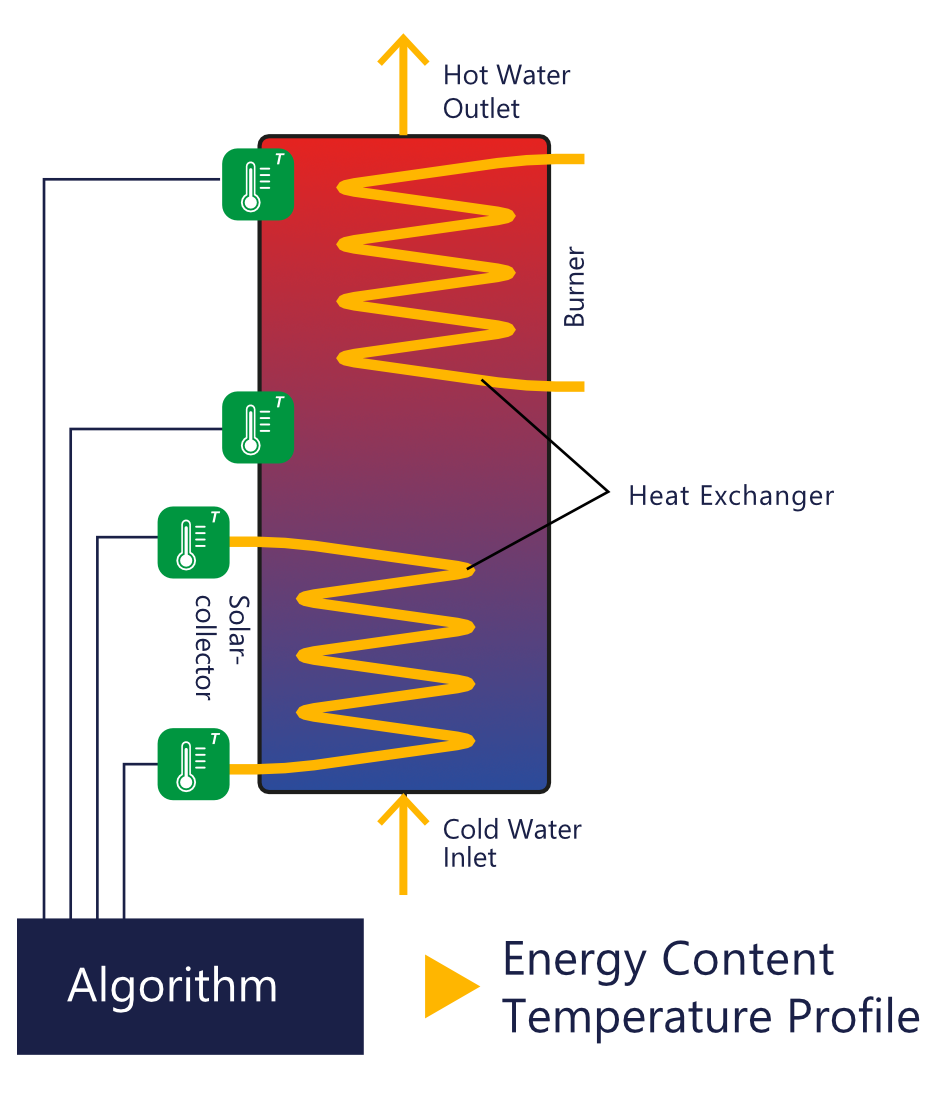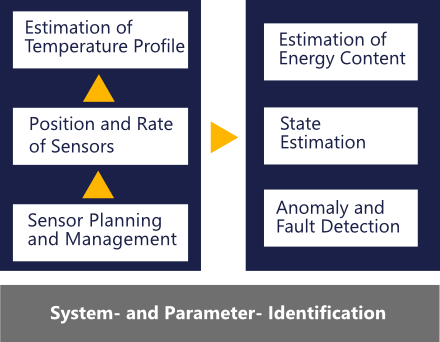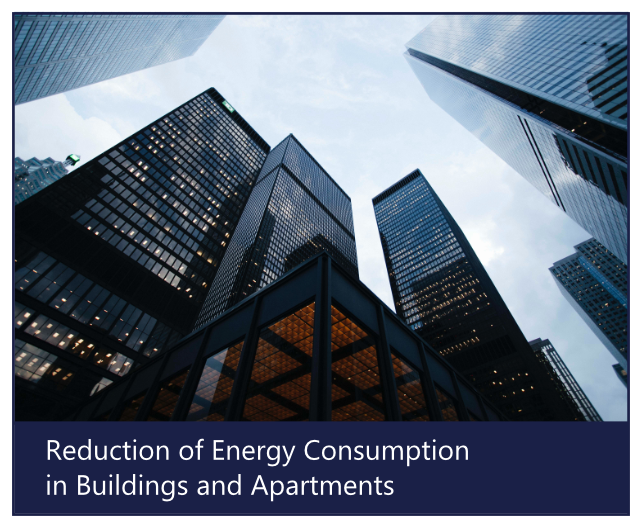Intelligent Hot Water Tank
Project goal
In order to provide a desired room climate, heating, ventilation and air conditioning systems are used in apartments and buildings. A large part of the total energy consumption of buildings is directly attributable to space heating and hot water systems. In order to reduce overall consumption, such systems should be designed and operated in such a way that energy consumption is as low as possible without impairing the comfort of the residents.
Developing heating systems that use an intelligent control strategy and thereby reduce overall energy consumption is quite difficult for several reasons. One reason for this is that, compared to the complexity, very few sensors are installed that monitor the underlying room climate and the heating system. This means that only a very limited view of the current status of the heating system is available.
From a data processing point of view, the greatest challenge is that the heat exchangers of the solar collector and the burner feed an unknown amount of energy into the system and the events of hot water extraction and cooling reduce the energy content. In addition, the temperature is only monitored by a few sensors, which are located on the heat exchanger of the solar collector and in the middle and top of the water tank.
The aim of this project was to develop different algorithms for condition detection, the estimation of the energy content and the temperature profile in hot water storage tanks. The main goal was to estimate the energy content based on the few sensor data and to control the hot water storage tank in such a way that energy consumption can be reduced. This makes it possible to provide the end customer with additional functions for needs-based hot water preparation.


Development approach
Result and benefit



